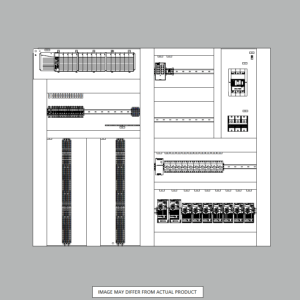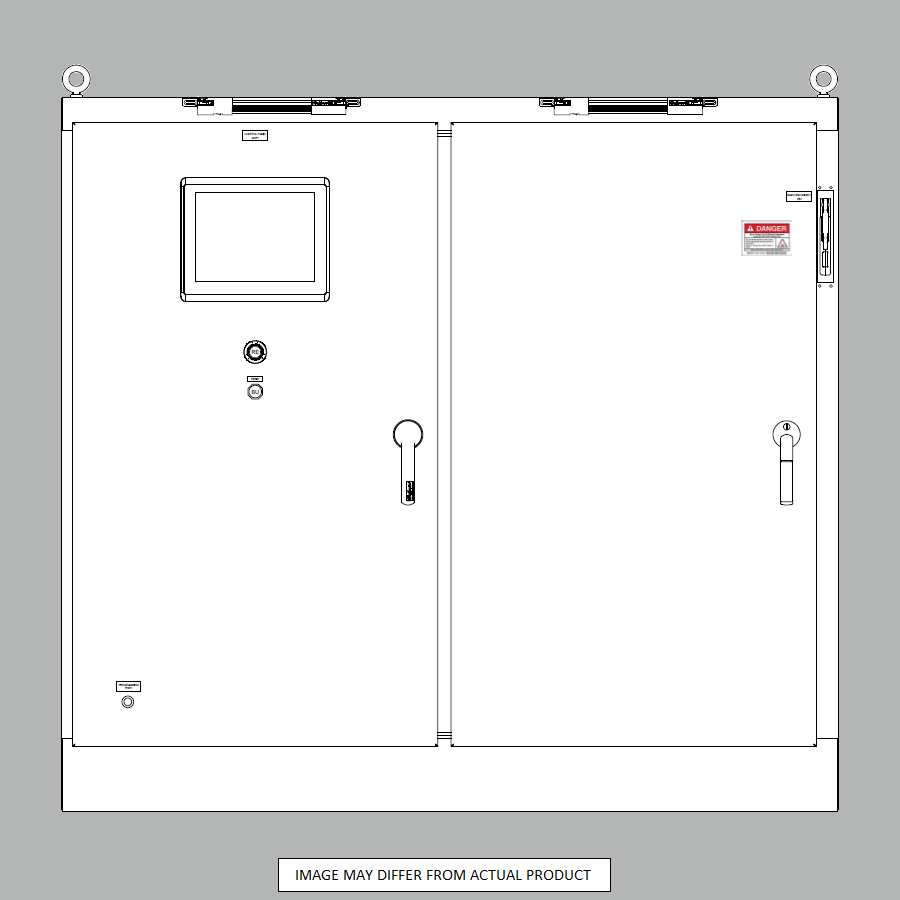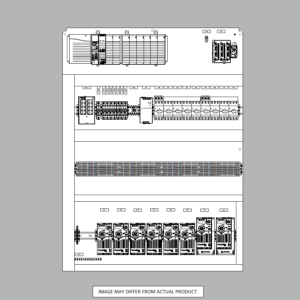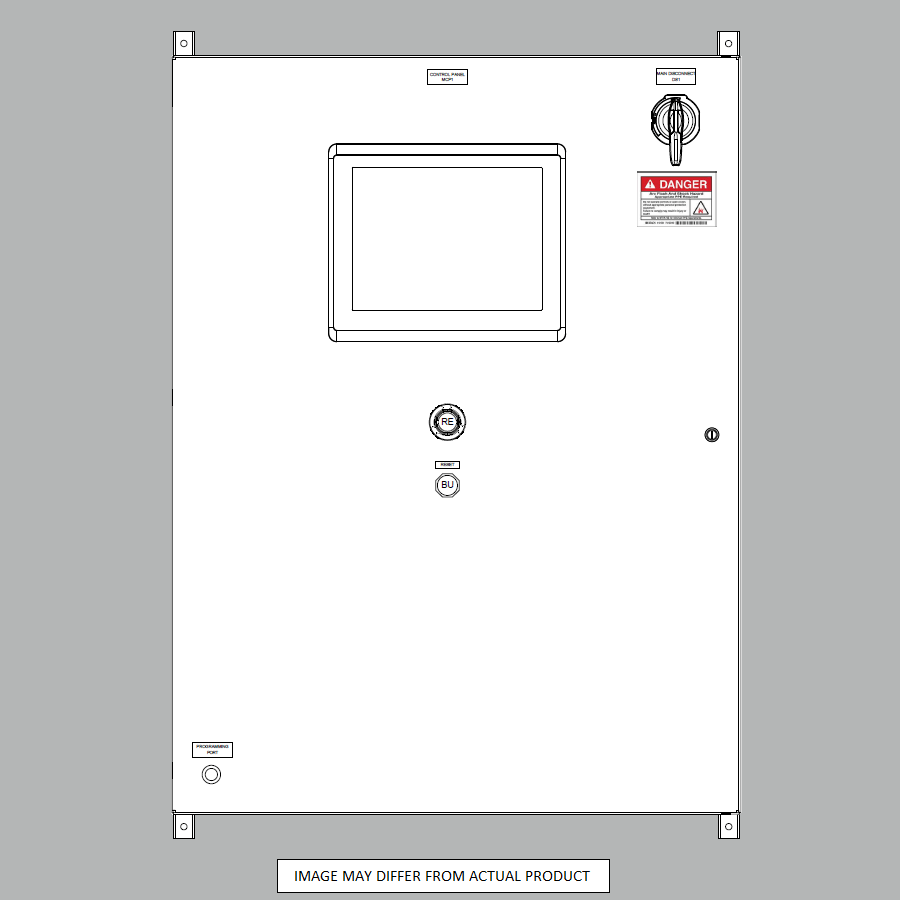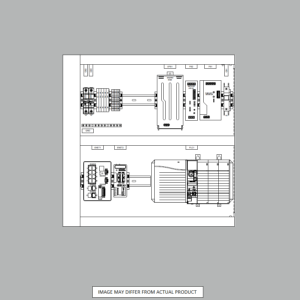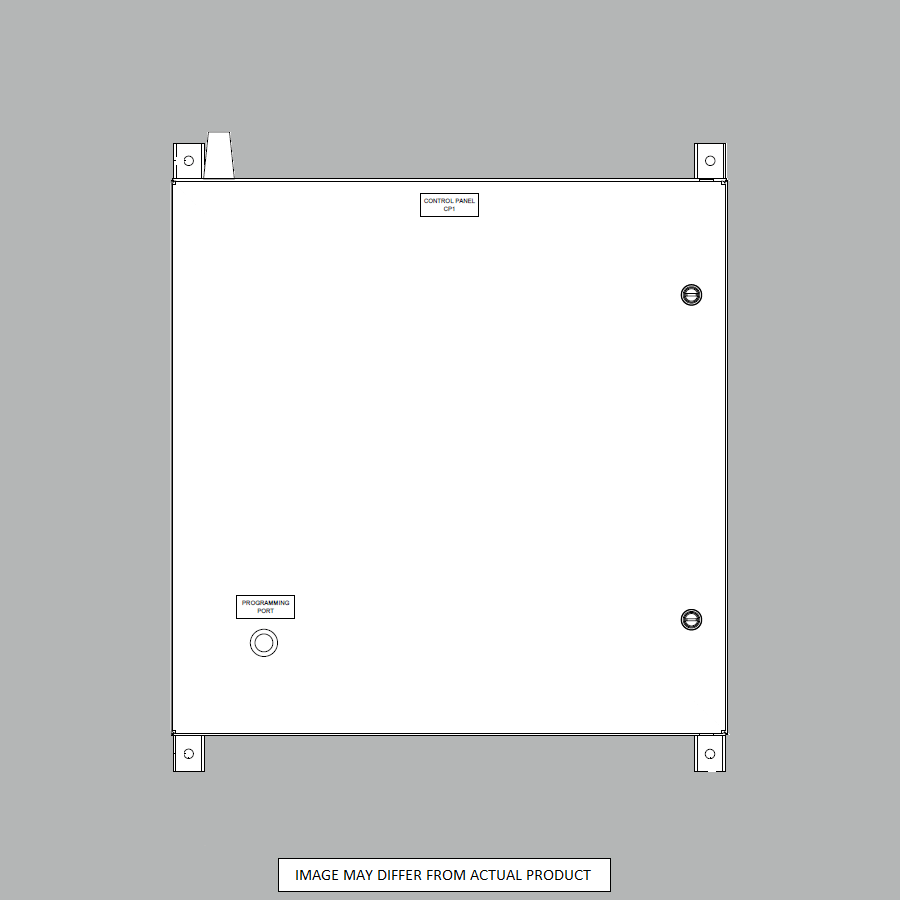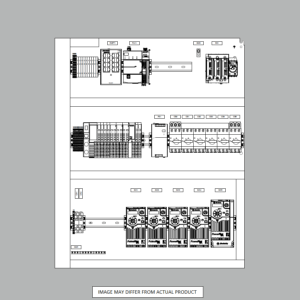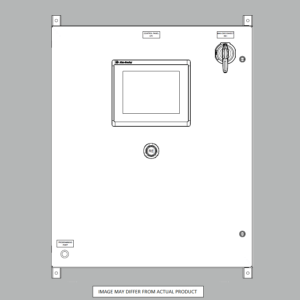Control Engineering: Insights into Instrumentation and Control
Imagine running a manufacturing company where every tiny part of your production process is fine-tuned to work perfectly. That’s where Instrumentation and Control Engineering (ICE) comes into play. This field is crucial for ensuring your production lines run smoothly and efficiently.
Even a small error in measuring temperature, pressure, or flow can lead to big problems in manufacturing, chemical processing, and energy industries. This can mean lost time, wasted resources, or even safety hazards.
Imagine your entire production halting because a machine overheated or a pressure gauge failed. Not only does this cause delays, but it could also lead to safety risks and extra costs. Ensuring precise control and measurement is not just a technical need; it’s essential to your business’s success and safety.
Instrumentation and Control Engineering helps solve these issues. By designing, setting up, and maintaining various instruments and systems, ICE ensures accurate measurements and control of your processes. It uses sensors and devices to monitor your operations and control systems to adjust deviations immediately. This means more stability, productivity, and safety in your plant.
With the right ICE strategies, you can keep your operations running within the ideal conditions, optimizing performance and cost-efficiency. This introduction to ICE highlights how integrating these technologies protects and enhances your manufacturing process. This makes your business more robust and reliable.
The Role of Instrumentation in Industries
Instrumentation is essential in various sectors, providing the crucial data and control needed to monitor and measure operational processes. This field employs advanced devices and systems to detect, measure, analyze, and record physical quantities such as temperature, pressure, level, and flow. By enabling precise monitoring, industries can ensure their operations are smooth, efficient, and consistent with set standards. This is vital for quality control and enhancing production efficiency, leading to higher productivity and less waste.
Moreover, instrumentation is key in promoting safety and efficiency within industrial environments. It assists in detecting potential hazards, malfunctions, or deviations early, helping to prevent accidents and unplanned downtime. Safety tools, like gas detectors and emergency shutdown systems, are especially crucial in hazardous settings, protecting people and assets. Adopting accurate and reliable instrumentation can also lead to substantial cost savings and environmental benefits by reducing energy use and decreasing environmental impact.
Various sectors depend heavily on instrumentation. For example, the chemical and petrochemical industries need constant monitoring to ensure that reactions and blending occur safely and efficiently. The power generation sector uses it to control and monitor equipment like boilers, turbines, and generators, optimizing power output while upholding safety standards. Water treatment facilities rely on instrumentation to continuously check water quality parameters, ensuring the water’s purity and safety. Therefore, the role of instrumentation is fundamental across diverse industries, supporting the reliable, efficient, and safe production of goods and services.
Key Components of Instrumentation and Control Systems
Instrumentation and control systems are crucial in modern industrial operations, ensuring efficient, safe, and reliable processes. These complex systems have several key components that transform raw data into actionable insights and actions.
At the core of these systems are sensors and transmitters. Sensors detect and measure physical properties like temperature, pressure, level, or flow. Transmitters convert these measurements into electrical signals, communicating this information to control systems for further analysis and action. This data collection and transmission process is fundamental to monitoring and controlling operations.
Control valves and actuators are also critical components. Control valves adjust the flow of materials through pipelines by changing the size of the flow passage based on signals from a controller. Actuators convert these control signals into mechanical movements to operate the valves. This interaction allows for precise control over process variables, significantly impacting the efficiency and safety of industrial activities.
At the heart of these systems are Programmable Logic Controllers (PLCs). PLCs are robust computers designed by process engineers to execute control algorithms based on sensor inputs and predefined set points. These devices manage a broad spectrum of industrial processes and equipment with exceptional reliability and flexibility. PLCs have brought a new level of sophistication and automation to industrial process control, marking a significant advancement in managing these processes.
Applications of Instrumentation and Control Engineering
Instrumentation and control engineering are essential in modern industries, offering vast applications that enhance efficiency, safety, and economic operation. One primary area where this discipline shines is in process control within manufacturing. Instrumentation ensures high-quality and consistent products by automating the manufacturing processes and meticulously monitoring variables such as temperature, pressure, and flow. This automation boosts efficiency and productivity and enhances safety by reducing human involvement in potentially hazardous processes.
Energy management systems represent another significant application of instrumentation and control engineering. These systems are crucial in a world focused on energy efficiency and sustainability. They help monitor and control the energy use in industrial plants, buildings, and cities, aiming to cut energy waste and optimize resource use. Through carefully analyzing sensor data and implementing control actions, these systems can significantly lower energy costs and reduce carbon footprints.
Advancements in instrumentation and control engineering also greatly benefit environmental monitoring. This application involves measuring ecological factors such as air and water quality, radiation levels, and pollutants through advanced instruments. The collected data can prompt alerts for pollution control and help ensure adherence to environmental regulations. Therefore, instrumentation and control engineering not only aids in industrial and economic endeavors but also plays a vital role in safeguarding public health and the environment.
Challenges in Instrumentation and Control Engineering
Instrumentation and control engineering is crucial for the smooth functioning of industrial processes, energy systems, and automated manufacturing. However, the field encounters several challenges that require constant innovation and adaptation.
A significant challenge is managing complex systems. Engineers must develop, monitor, and maintain increasingly sophisticated control systems as automated systems and processes become more intricate and widespread. These systems must manage precise control over industrial operations and ensure safety, reliability, and efficiency. The complexity demands a comprehensive understanding of various sensors, actuators, and control strategies and the ability to integrate these elements into effective, robust systems.
Cybersecurity is another critical issue. As industrial control systems increasingly integrate with information networks, they become more susceptible to cyber threats. Engineers must implement strong cybersecurity measures to protect sensitive data and control industrial processes. This includes securing network communications, establishing strict access controls, and monitoring potential threats and vulnerabilities.
Additionally, the rapid pace of technological advancement offers both opportunities and challenges. Engineers must continually update their skills and knowledge to adopt new technologies to improve system performance and efficiency. However, integrating these new technologies into existing systems without disrupting operations or compromising safety requires careful planning, testing, and validation. This ongoing need to balance innovation with practical application defines the dynamic nature of instrumentation and control engineering.
Future Trends in Instrumentation and Control Engineering
Instrumentation and control engineering are on the brink of transformative changes, largely driven by advancements in the Internet of Things (IoT) and Artificial Intelligence (AI).
Internet of Things (IoT)
IoT technology is set to drastically change how we interact with our surroundings. We are moving towards a world where an even greater number of devices across various sectors, such as smart homes, healthcare, agriculture, and manufacturing, are interconnected. This vast network of devices will enable a more connected and efficient world where devices communicate with each other and humans, enhancing user experiences and operational efficiencies. The ability of these devices to collect and exchange data will also improve decision-making processes, making daily tasks more streamlined and intelligent.
Artificial Intelligence (AI)
Alongside IoT, AI is shaping the future of many industries by enabling smarter, autonomous systems capable of learning, adapting, and making decisions with little to no human intervention. Integrating AI with IoT devices pushes the limits of what’s possible, from personalizing user experiences to implementing predictive analytics in real-time scenarios. The combination of AI and IoT promises a more interactive and responsive world where technology anticipates and meets the needs of both individuals and businesses.
Predictive Maintenance
A specific area where AI and IoT are making significant strides is predictive maintenance. This technique employs data analytics and machine learning to forecast when equipment might need maintenance before it fails. Predictive maintenance trends are moving towards more accurate predictions and proactive strategies. By analyzing data from IoT sensors in real-time, AI algorithms can detect patterns and anomalies that indicate imminent equipment failures, allowing for timely preventive actions. This approach not only boosts efficiency and sustainability but also reduces costs by avoiding expensive repairs and extending the lifespan of essential machinery.
These trends indicate a future where instrumentation and control engineering make industries more efficient, proactive, and responsive to the needs of both the market and the environment.
Career Opportunities in Instrumentation and Control Engineering
Instrumentation and control engineering is a vital field that underpins the automation and control of processes across multiple industries. This field offers many career opportunities, attracting individuals interested in designing, installing, managing, and maintaining control systems and machinery.
Job Roles and Responsibilities: Instrumentation engineers’ roles are diverse and include developing control strategies, implementing system enhancements, troubleshooting equipment issues, and ensuring compliance with safety and quality standards. These engineers are essential in boosting operational efficiency and ensuring process reliability, skills that necessitate a robust blend of technical know-how and problem-solving abilities.
Industries and Demand: A wide range of industries recruit instrumentation engineers. These include traditional sectors like oil and gas, manufacturing, and pharmaceuticals, as well as areas like energy production and newer fields such as sustainable resources and environmental engineering. The demand for these professionals is high due to their ability to work with sophisticated technologies and maintain crucial operational standards. Their skills are critical in designing and improving automation systems, making them invaluable assets in numerous sectors.
Salary and Growth Potential: The wages for instrumentation and control engineers are generally attractive and reflect the significant expertise and responsibility these roles entail. Salary levels can vary based on location, years of experience, and the particular industry sector. Typically, entry-level positions offer competitive starting salaries with substantial growth potential as engineers advance in their careers, tackling more complex projects and challenges. The technical nature of this field and the crucial role these professionals play in maintaining the efficiency and safety of industrial processes ensure a strong demand for their skills, leading to competitive compensation packages. This dynamic field not only offers a promising career path but also a chance to make a significant impact on the efficiency and sustainability of modern industries.
The Significance of Instrumentation and Control Engineering
Throughout our discussion, the critical role of instrumentation and control engineering in modern industry has become clear. This field is central to the seamless operation, automation, and efficiency enhancement of systems across various industries. Whether it’s ensuring the precision of manufacturing lines, monitoring environmental factors, or safeguarding complex systems, the expertise of instrumentation and control engineers is essential for keeping industrial operations safe, efficient, and reliable. Their contribution is vital in upholding the stringent standards required in today’s technologically sophisticated and highly regulated environments.
For those considering their career options, a path in instrumentation and control engineering offers an exciting, challenging, and fulfilling journey. This field significantly enhances industrial operations’ efficiency and safety and provides numerous opportunities for innovation and professional growth. With the growing implementation of smart technologies and the Internet of Things (IoT) in industrial settings, the demand for skilled engineers in this area is expected to increase dramatically.
The future of instrumentation and control engineering looks exceptionally bright. Driven by rapid technological advances and an increased focus on sustainability and precision within industrial processes, the need for competent engineers in this field has never been higher. As the industry continues to evolve, it promises new challenges and opportunities for those ready to take them on. For anyone with a passion for engineering and a desire to make a real difference in industrial operations, pursuing a career in instrumentation and control engineering is an excellent choice.
At Automation Ready Panels, we are composed of experienced and experts in instrumentation and control engineering. This makes us qualified to provide the right design and implementation of projects. Get in touch today and let’s discuss your requirements.
-
Large Process Automation: Panelview 5000, ControlLogix 5580
$24,073.00 Select options -
Small Process Automation: Panelview 5000, ControlLogix 5580
$20,321.00 Select options -
Small Process Automation: ControlLogix 5580, UPS Battery Backup, Cellular Modem
$18,999.00 Select options -
Advanced Automation: Panelview 5000, Safety CompactLogix 5380
$10,269.00 Select options


